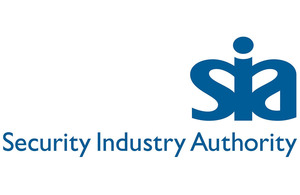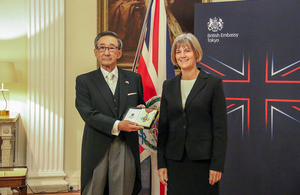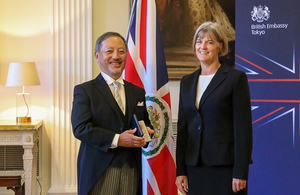Maidenhead company director prosecuted for obstructing an SIA investigation
Press release
On Friday 11 November 2022, Muhammad Imran was prosecuted in his absence at Reading Magistrates’ Court for failing to supply information to the Security Industry Authority (SIA).

Mr Imran, a company director from Maidenhead, was fined £440 and required to pay £1,953.50 prosecution costs plus a £44 victim surcharge.
Mr Imran’s company MNMFM Ltd was the supplier of security to an Oldham supermarket. On 28 August 2021 the store’s retail manager noticed that the usual security operative was replaced by an unidentified man who was unlicensed. The manager notified the SIA who began an investigation.
SIA investigators sent a request for information to Mr Imran last December. He responded but failed to provide the information that had been requested. The SIA sent a further request for information last February which Mr Imran ignored. He also failed to respond to a request to attend an interview under caution, which would have given him the opportunity to respond to the allegations. This left the SIA with no option but to prosecute Mr Imran.
Jenny Hart, one of the SIA’s criminal investigation managers said:
Mr Imran failed to engage with the SIA, whose purpose is to administer the private security licensing regime that protects the public. If there are unlicensed operatives working in supermarkets the public are put at risk. I’d like to thank the Oldham store for their co-operation with this case. As a licence holder Mr Imran was reasonably expected to comply with requests for information from his regulator. He ignored this request and has now ended up with significant costs, no licence, and a criminal record.
Notes to editors:
- By law, security operatives working under contract must hold and display a valid SIA licence
- Read about SIA enforcement and penalties
- The offence relating to the Private Security Industry Act (2001) that is mentioned above is: section 19 – failing to provide information relating to an investigation
Further information:
- The Security Industry Authority is the organisation responsible for regulating the private security industry in the United Kingdom, reporting to the Home Secretary under the terms of the Private Security Industry Act 2001. The SIA’s main duties are the compulsory licensing of individuals undertaking designated activities and managing the voluntary Approved Contractor Scheme.
- For further information about the Security Industry Authority or to sign up for email updates visit: www.gov.uk/sia. The SIA is also on LinkedIn Facebook (Security Industry Authority) and Twitter (@SIAuk).
Published 22 November 2022

